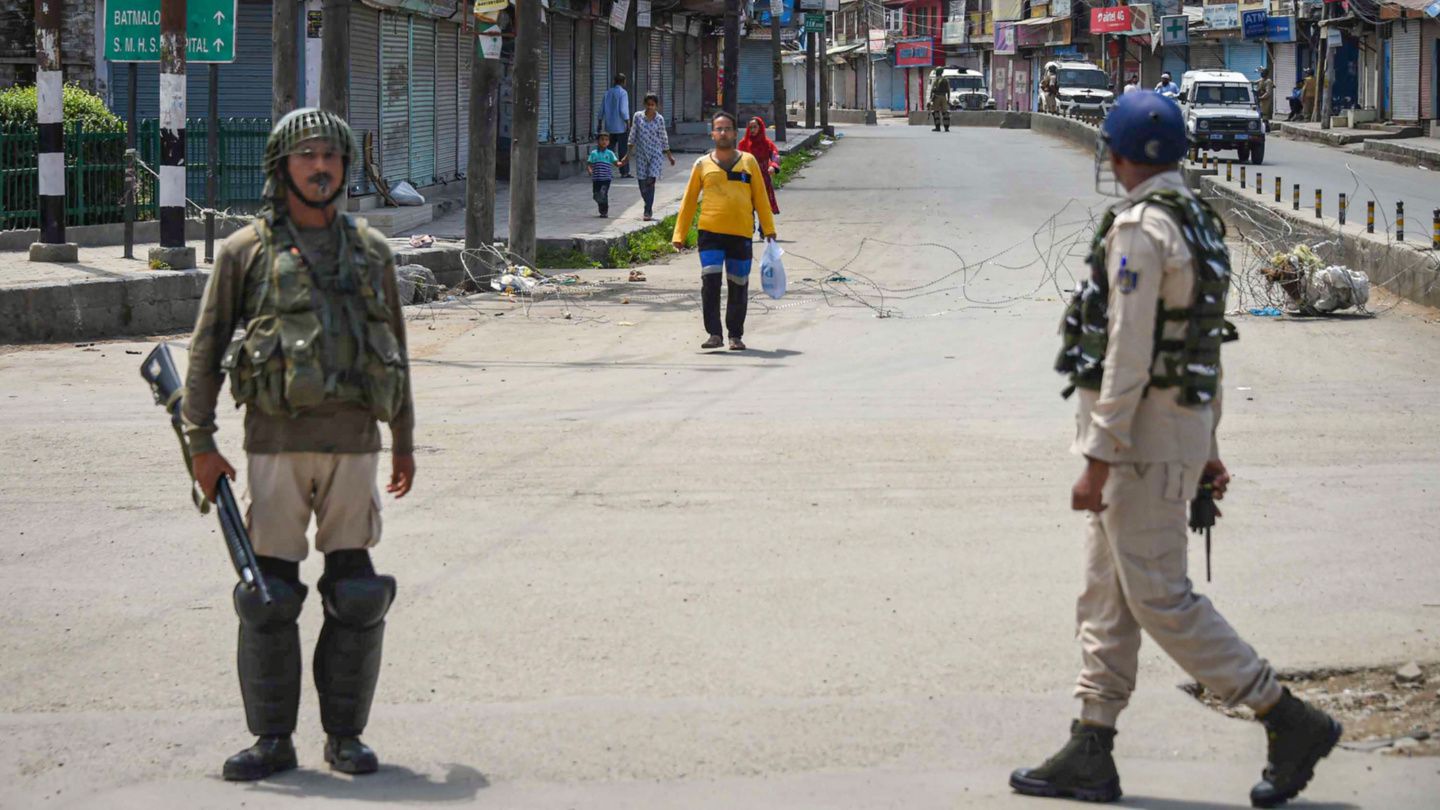
In a throwback to mid-nineties, the central government is set to re-establish the Village Defence Committees (VDCs) in the Jammu division to combat militancy. And this time the VDCs are expected to not only get hi-tech weapons but also equal salary, reports Riyaz Wani
In a throwback to mid-nineties, the central government is set to re-establish the Village Defence Committees (VDCs) in the Jammu division to combat militancy, according to senior BJP leaders in J&K. And this time the VDCs are expected to not only get hi-tech weapons but also equal salary.
“A meeting was called by Union Home Minister Amit Shah in New Delhi recently with us. It was decided that VDCs will be re-established with a changed nomenclature. They will be called ‘village defence groups’ now. We have demanded hi-tech weapons for them so that Pakistan’s designs can be foiled,” J&K BJP general secretary and Kashmir in-charge Sunil Sharma recently told media in Jammu.
“We expect a formal order on village defence groups soon from the Union Home Ministry. We thank both Prime Minister Narendra Modi and Union Home Minister Amit Shah for the measures. Especially, I want to thank Director General of Police Dilbag Singh for pleading the case of VDCs,” he added.
The VDCs are being re-established at a time when the militancy in Jammu is almost non-existent. There was, however, a sudden resurgence in violence in Poonch-Rajouri belt in September-October last year. This brought the two districts – where militancy had all but ended since early 2000 – back into focus. In just over two months seventeen soldiers, eight militants and one civilian were killed.
There was an important difference though. The violence was not indigenous. The militants had come from across the border and after causing several casualties of security personnel, they were believed to have returned.

Ever since Jammu division has been calm. Almost all districts have already been declared militancy-free. There is hardly any local militant. In such a scenario, reviving the VDCs which are now to be named Village Defence Groups seems inexplicable to the politicians from Kashmir Valley.
“The MHA’s move to form village defence committees across J&K is another addition to a slew of decisions that contradict GoI’s (Government of India) much-touted normalcy claims. Clearly, J&K is far from any semblance of normalcy. It will also create a wedge between communities,” former Chief Minister and People Democratic Party president Mehbooba Mufti said.
When they were constituted in the mid-nineties, there were 26,567 VDC members fighting militancy in 10 districts of Jammu province and Leh district of Ladakh and around 96 per cent of them were Hindus.
In three districts of Chenab Valley, a part of the Jammu division, where Muslims are in a slight majority, the picture remained the same. For example, in Kishtwar, where the ratio of Hindus to Muslims is 40:60, 3174 out of 3287 VDC members were Hindus. In Doda, with a 30:70 Muslim ratio, 5874 out of around 6000 VDC members were Hindus. In Ramban, with 40:60 ratio, 2697 out of 2901 VDC members were Hindus.
But after militancy dwindled towards the late 2000s and was eventually wiped out, the VDCs became redundant. But they continued to remain in existence for a while. But later when many cases of human rights violations were attributed to them – which included the killing of a National Conference (NC) youth leader, Ishtyaq Choudhary, by Kewal Kumar Sharma, a VDC member, in Rajouri’s Kalakote area – the successive government moved to gradually disband them.
But now the planned move to revive them has taken the people in J&K by surprise. More so, when the Supreme Court in an order in 2011 has barred the recruitment of militia.
The Supreme Court in its order had declared the appointment of Special Police Officers by Chattisgarh government and the centre as “unconstitutional”. A two member bench comprising justices B. Sudershan Reddy and S S Nijjar had asked the two governments to desist from appointing tribals as SPOs and arming them to counter Naxals in any manner directly or indirectly. The court had also said that the creation of Koya Commandos and Salwa Judum in Chattisgarh was in violation of the Constitution.













